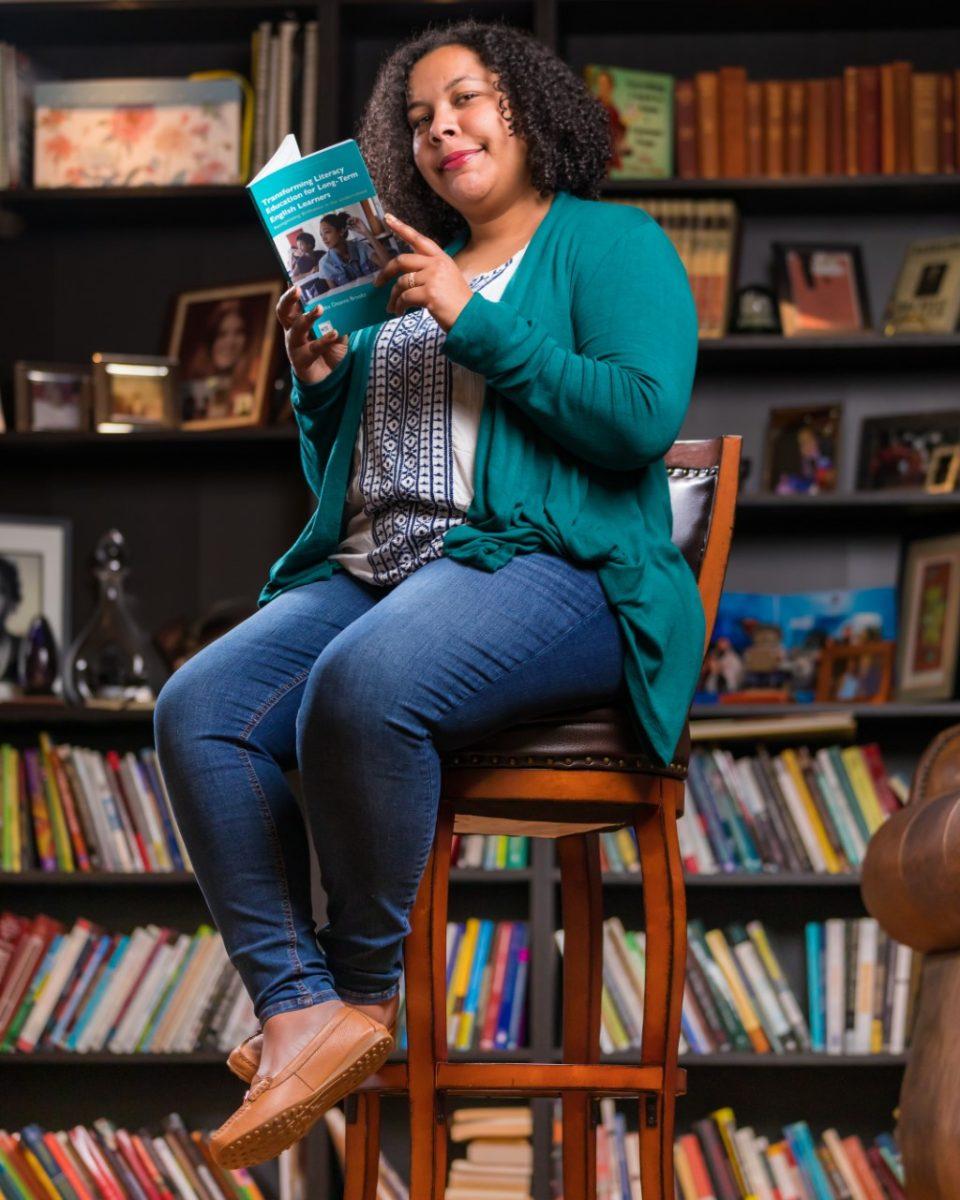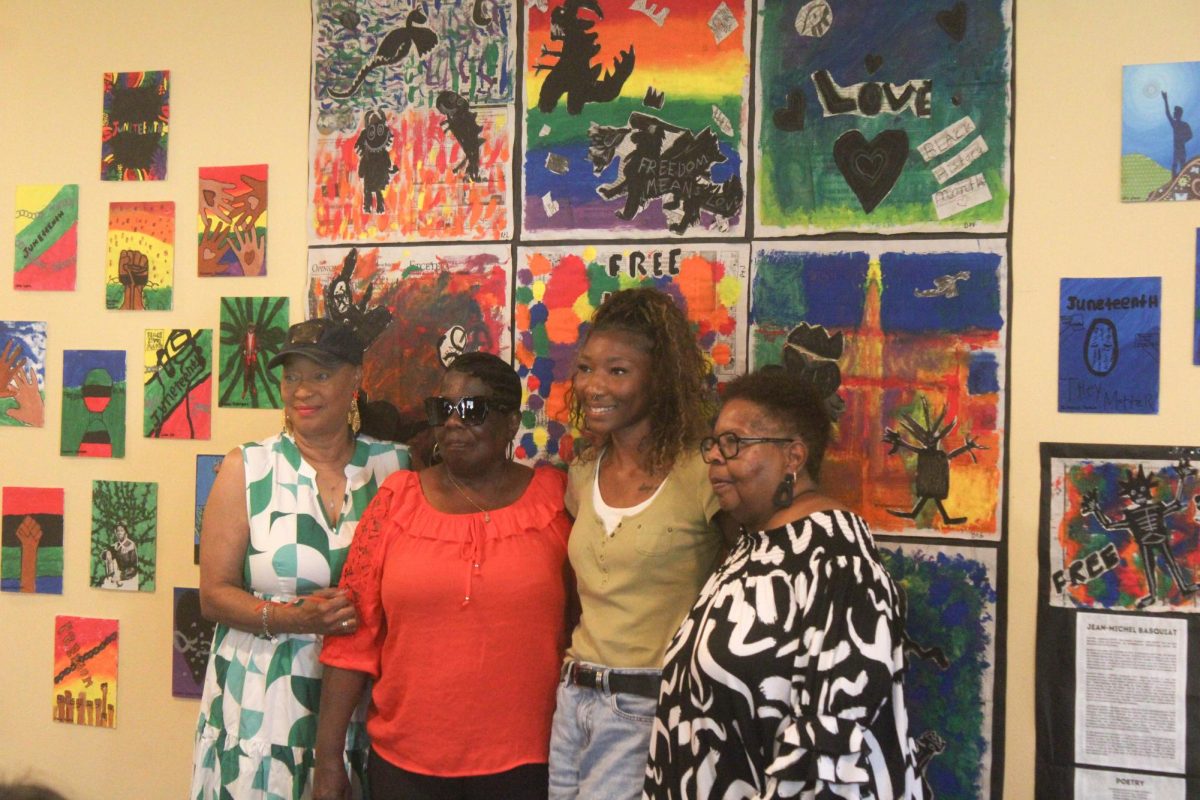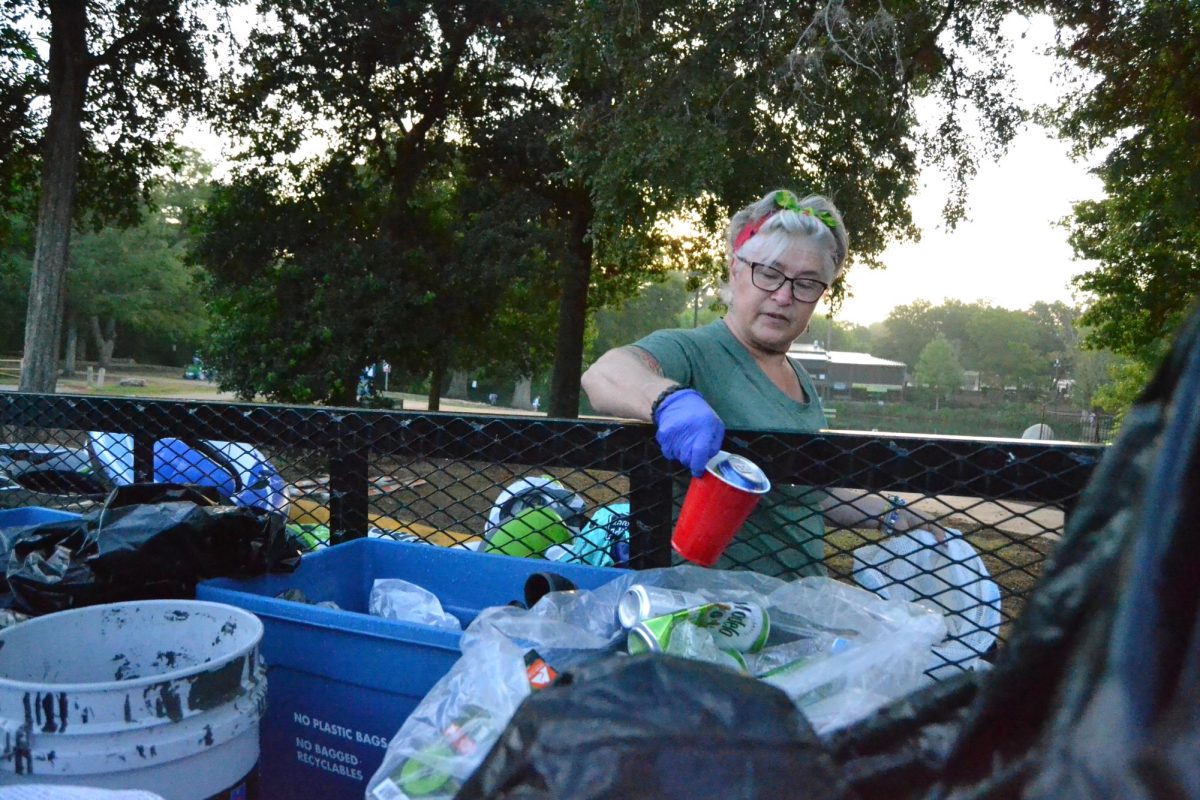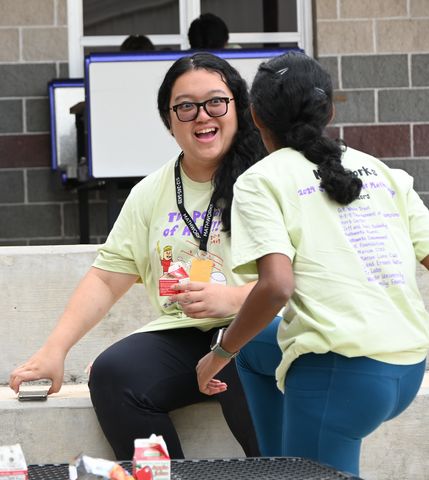While these characteristics may apply to some students, they are by no means universal. Dr. Maneka Brooks, an associate professor of Reading Education, is on a mission to challenge the assumptions of that stereotype and the subsequent and often reductive teaching methods that come with it.
The latest iteration of her effort comes in the form of a textbook she wrote titled “Transforming Literacy Education for Long-Term English Learners: Recognizing Brilliance in the Undervalued.”
“My book [asks], ‘What could literacy instruction that builds on students’ abilities look like?’ It looks at providing concrete strategies and ways of going beyond myths about who students are,” Brooks says. “I wrote it for educators, principals and instructional leaders to really think through the label ‘long-term English learner’ and the assumptions about who a student is, what they are and what they can’t do.”
The book, published less than two years ago, has already found a passionate fanbase of educators around the country who have spent years searching for more effective methods to use with their students.
Among that fanbase is Patty Payne, who has taught high school English as a Second Language (ESL) in the suburbs of Chicago for more than 40 years, since the field was in its early days. Payne has seen the field of English language instruction evolve without always necessarily improving.
She first heard Brooks speak at an online conference in summer 2020. The influence Brooks had on her was immediate and lasting.
“Dr. Brooks’ book is very cutting edge and very different from other things that I’ve seen before. The same label is given to both the student who comes in ninth grade from China and the young man who is born in the U.S., raised in a Spanish-speaking family, and for whatever reason is falling through the cracks,” Payne says. “If they were monolingual speakers of English, we would say, ‘Oh, okay, we need to help them in this way and that way.’ But because there is another language involved, they are seen as different. This is something I never thought about until I read her book.”
Reading Brooks’ book has helped Payne understand that when a student is struggling with some element of literacy, it is not a deficiency on the student’s part; it is because of a failure in the system. This idea of justice and its absence for some students is a central theme in Brooks’ work.
“I try to avoid using terms like ‘achievement gap’, and [instead] talk about opportunity gaps. It’s about resources,” Brooks says. “When you look at things like achievement gaps, it’s very individualistic, and it assumes that certain people are doing better than others. When you think about opportunities and who has access to what and whose abilities are recognized and whose cultures are recognized in school, then the question gets a lot more complicated.”
Pasco County English to Speakers of Other Languages (ESOL) Curriculum Specialist Magda Mackenzie has also noticed the tendency schools have to overlook and underserve the needs of certain populations of students.
Mackenzie often sees students either incorrectly classified as English learners or being given support during the initial stages of their English learning, just to later be released into an unsupported classroom environment once they have demonstrated a certain level of English proficiency.
Mackenzie is trying to actively improve this process, starting with having all the members of her district’s ESOL team read and discuss Brooks’ book together, one chapter at a time.
“We’re trying to figure out what it is in the system that’s causing this phenomenon and how we can all contribute to interrupting the pattern,” Mackenzie says. “One of [Brooks’] strongest points is that a lot of times, society is looking at long-term English learners from what they can’t do and going right past what they can do. We want to look at students from an asset point of view instead of from a deficiency point of view.”
In Brooks’ experience, a large part of understanding students in terms of what they are capable of and playing to those strengths comes from actually listening to students. Listening is an integral part of education she is focused on promoting in schools.
“[I’m] thinking about how we can make schools spaces where children’s voices are heard, and I think for certain demographics of children that does happen more often than others,” Brooks says. “That’s where I’m at right now. It is connected to literacy education because it’s about creating spaces where people can learn.”
Brooks’ “Transforming Literacy Education for Long-Term English Learners: Recognizing Brilliance in the Undervalued” is available for purchase on Amazon. More information about her research can be found on her website.



















